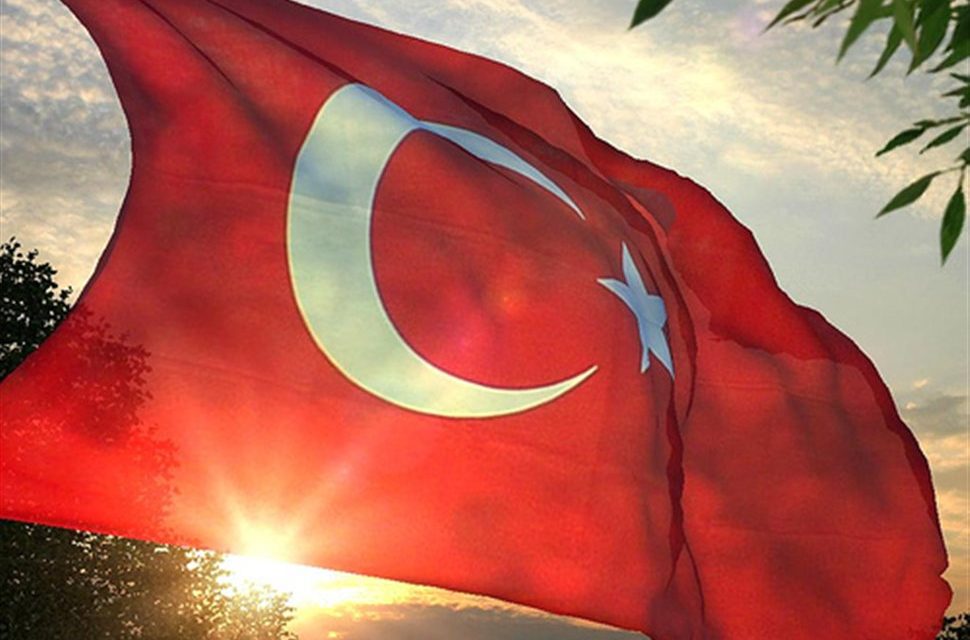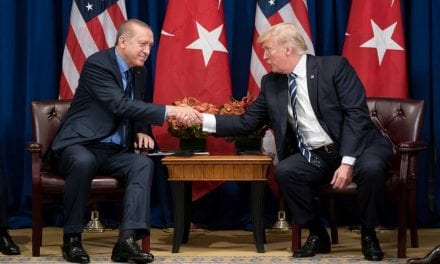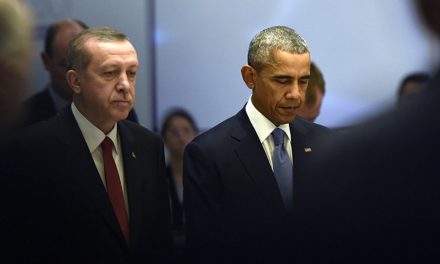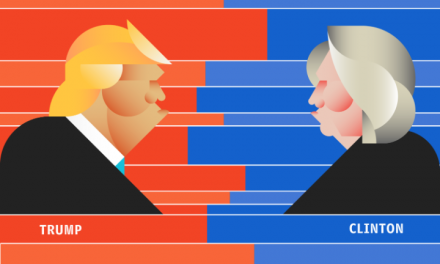By Hasan Öztürk, Yeni Safak
Strong steps for a political solution” had started to be taken in Syria following the tripartite summit in Sochi, a continuation of the Astana process, until a hand stepped in – or perhaps, a few hands.
There was also an expectation of significant results from the Syria National Congress that convened in Sochi late January. However, Idlib, a de-escalation zone under Turkey’s guarantee, being bombed by Bashar Assad’s forces, is one of the reasons that brought the process to a standstill.
What’s more, some terrorist groups in Idlib, provoked by the U.S., organized an attack on the Russian base with unmanned air vehicles (UAVs). These incidents prevented the anticipated results from being achieved in the Sochi Congress. The appearance of Mihraç Ural, head of the Turkish Peoples’ Liberation Party-Front (THKP-C), in Sochi, was a sign that things were long out of hand.
We are face to face with the fact that the closer a political solution in Syria, the more the sides resort to violence for control of the area.
There is a plan to establish a terror corridor in northern Syria with U.S. aid and support. The Kurdistan Workers’ Party’s (PKK) Syrian affiliate, the Democratic Union Party (PYD) and its armed wing, the People’s Protection Units (YPG), starting to fortify the areas they forcefully took, the U.S. equipping terrorists with 5,000 truckloads of weapons and, what’s more, part of those weapons being used within our borders to massacre, to martyr our people is not something Turkey can accept.
The desire of the Syrian regime, supported by Russia and Iran, to include opposition-held areas like Idlib and Eastern Ghouta in its area of influence before the political solution is also apparent.
The U.S. and Israel’s insistence on their “divided Syria” theory seems to have restarted violent clashes ahead of the political solution.
The Turkey on the ground and the Turkey at the table are one and the same
Ever since Jan. 20, when we launched Operation Olive Branch to ward off the terrorist organization that has been threatening Turkey from our borders, all of the sides in Syria are trying to deter us from this operation, attacking with weapons like mortar and missiles from the terror corridor spanning Afrin and the Iraqi border. Because Turkey has announced from the beginning that after Afrin, it will turn to Manbij and then to the east of the Euphrates.
Turkey getting back on Syrian ground after Operation Euphrates Shield, led to the emergence of different voices from among even Russia and Iran, our affiliates in Syria. Meanwhile, our “strategic partner,” the U.S., and our NATO allies have almost imposed a weapons embargo on Turkey. Every day, the U.S. and European countries demand that Turkey stop the Afrin operation. As a matter of fact, Turkey is sometimes being threatened, sometimes spooked.
Why?
Because Turkey is not giving consent to a terrorist organization that is a national threat to itself and protected by our allies.
Why?
Because Turkey has grasped the game in Syria. If, at the end of the game, the U.S. and its gang win, there will be no state left in Syria. Little boutique statelets are going to be formed. Israel will be free of the “threat.” The statelets to be established (the PYD/YPG-PKK is going to want to directly establish a terrorist state in northern Syria) will target Iran and Turkey. The “borders of 22 countries will change”* as a requirement of the U.S.’s long-term strategy for the Middle East. Turkey will also be included among these countries.
US and Israel back on the ground in Syria
The U.S. had no other operation in Syria for a long time other than protecting and aiding the PYD/YPG-PKK terrorists. After taking Daesh out of Raqqa with an agreement, the U.S. was almost never seen on the ground and its air forces had not conducted any operations. However, for the last few days, the U.S. has been carrying out operations in Syria with its warplanes again. It hit the Syrian regime that hit the PYD/YPG-PKK terrorist organization. Israel hit the area right beside Assad’s palace in Damascus. The regime downed Israel’s warplane. Israel downed one of Iran’s UAVs in its airspace.
As you can see, things have become very chaotic in Syria.
Why?
Because the sides are insistent on their pre-political solution theories and they are trying to impose by wielding weapons.
We cannot help but think, “How will Turkey be affected by the chaos in Syria?”
The answer to this question is hidden in whether Turkey will keep abreast its theories and operations on the ground.
Then let’s see. What is Turkey’s theory on Syria?
The answer is territorial integrity and a just administration. Also, the elimination of the terrorist organizations that pose a threat to its perpetuity.
Turkey on the field creates difficulties for US’s strategic goals
So, what is Turkey doing on the field? It first swept the Daesh terrorist organization from its borders through the Euphrates Shield operation. It ensured peace and stability spanning a 2,000-square-meter area in northern Syria.
Second, it is putting up a legitimate fight against the PYD/YPG-PKK terrorist organization that is a problem for Turkey’s perpetuity and a threat to Syria’s territorial integrity. It is making great effort to prevent any harm to civilians during this fight. At the same time, it is constantly telling its addressees that it has no designs on Syrian land. While it is in synchronization with Russia and Iran, it is also conducting diplomacy. As a matter of fact, through Prime Minister Binali Yıldırım, Turkey even says, “It is not easy, but at the point reached after seven years we cannot disregard the regime.” It makes emphasis on Turkey’s territorial integrity and is fighting to clear Syrian lands of terrorism. It is trying to pave the way for the 3.5 million Syrian guests being hosted to return to their country.
Turkey’s theories and its application on the ground are consistent. That is why it has a response. The chaos in Syria is a sign that a political solution is close.
The U.S., which lost the initiative with Turkey coming to the ground, and its allies have nothing to do other than shed blood in Syria.
They too know that they cannot bring stability to Syria or the region by protecting terrorist organizations. They also know that with Turkey on the ground, their long-term strategic goals have reached a halt.



















